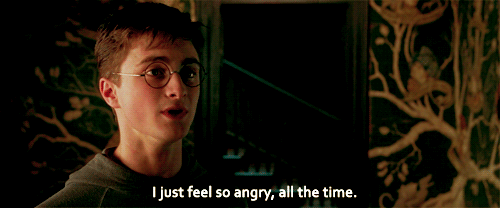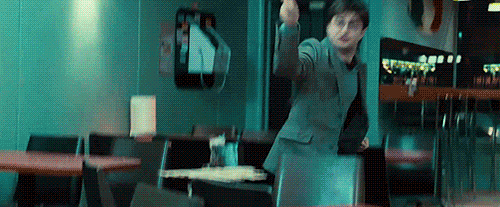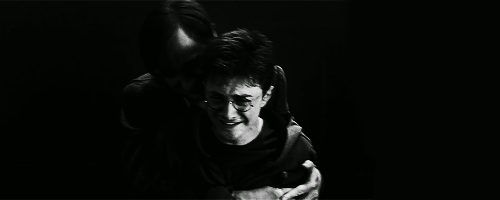“Cursed Child” Finally Gave Us the Harry We All Needed
We’ve left 2016 and welcomed a new year! I’ll be honest here: I think it has taken me until now for Harry Potter and the Cursed Child to sink in. Put simply, watching Harry on stage was painful. Jamie Parker’s portrayal of our hero was fantastic, but I saw something of myself in him that I wasn’t ready for.
I pride myself on my Gryffindor qualities – courage, bravery, and strength. But as I sat reading my colleague’s post about Jacob, I questioned whether my Gryffindor qualities would help me to step into the rain like Jacob. There is no way I could have stepped into the rain leaving those I had come to love behind me, and I’m not sure how this fits with my Sorting. It took until then to finally realize that watching Harry on stage, trying once again to protect those he loved while not letting other people in, even when he was breaking inside, rang true with me. His relationships with both his son and Ginny were suffering because of this, and yet he still couldn’t break down those walls.
Many fans have voiced the theory that Harry has symptoms of PTSD, and I tend to agree with this. There are many reasons why I do, but put simply for this post (since that’s a whole essay itself), it’s from my own understanding and experience of the disorder that I have come to this conclusion. I saw Harry fighting to keep his son safe, the night terrors, and reliving moments from his childhood, and they all spoke to me. His past was hurting his present, and he couldn’t stop it from taking over. Okay, so I do have to admit that this is part of the Time-Turner plot, but I believe it’s more than that.
From the very beginning of the series, we saw Harry want to save the world. His fierce loyalty and desire to protect others, although noble, did have a downside. They left him vulnerable. We know as part of this fandom family that Harry, Ron, and Hermione work best when they are together. Their traits and talents complement each other, and they remind us that we are all stronger together.
Harry always fought for those whose voice was quieter than the rest, those who felt ignored, left out, and pushed away, and he tried to listen to the advice and wisdom of those around him (yes, I know, this wasn’t a skill he mastered that well). But he often found it hard to let people in. He held it in until he exploded at the beginning of Harry Potter and the Order of the Phoenix, he couldn’t confide in Dumbledore (not that I entirely blame him for this decision), after Sirius Black died he shut himself away numb to the world, and after Arthur Weasley’s attack he once again shut himself away, believing he was protecting those he loved from himself.
Watching Harry fall to his knees on stage in Cursed Child as he saw his mother and father murdered broke me. I sobbed uncontrollably in my seat, so violently that the lady next to me silently placed a pack of tissues in my lap.
I’d grown up watching him hold it in, fighting his emotions, and driving forward for the greater good. But finally seeing Harry lean on his family, holding his wife and son’s hand, and raw emotion pouring out of him allowed me to break free as well. Seeing Harry let his emotions out was the strongest act I’ve seen him do. It was something I had needed from him all along. It was Harry telling me it’s okay to let people in.
I think both Harry and I have a long way to go, but I know it’s okay. So when this year seems daunting, or you’re questioning what the Sorting Hat saw in you, remember it’s okay to let people in. In fact, it’s more than okay. It’s normal! Battles aren’t meant to be fought alone. We’re all family here. We already know that this year is going to be one of change and adjustment. Whether you have a mental illness or not, remember, we are always stronger together.





